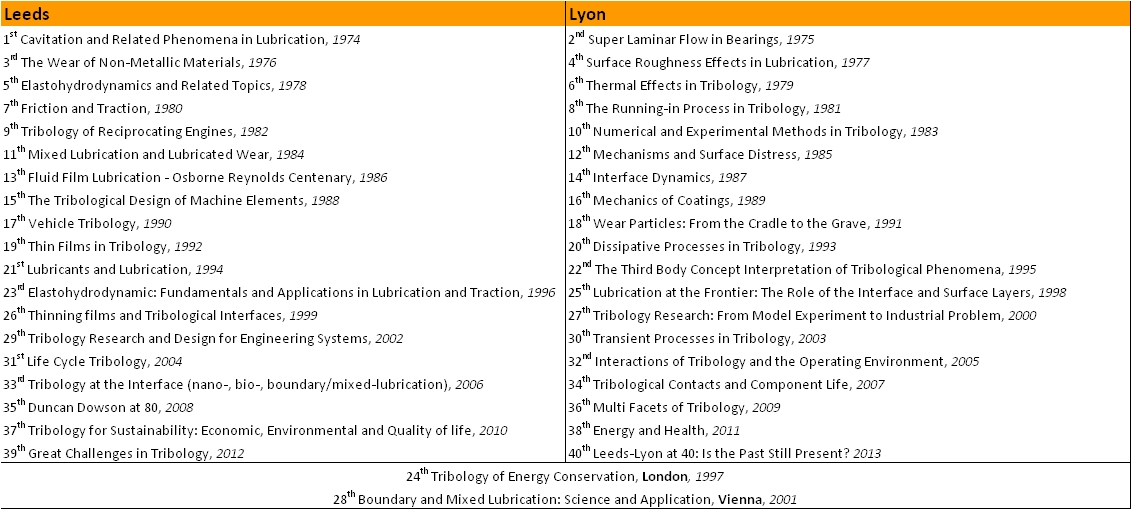The Leeds-Lyon Symposia on Tribology: an historical perspective
click on the table of previous symposia to enlarge it
The first Leeds-Lyon Symposium on Tribology was held in Leeds in September 1974. Since then, the two partners (the Institute of Tribology of the University of Leeds and the Laboratoire de Mécanique des Contacts of the Institut National des Sciences Appliquées de Lyon) have organized the symposium on an alternate year basis.
This rule was not applied on only two occasions: in 1997, the Symposium was held at Imperial College in London, a few days prior the 1st WTC organized by the Tribology Group of the Institution of Mechanical Engineers ; in September 2001, the Symposium was run in co-operation with the 2nd WTC, hosted by the Austrian Tribology Society in Vienna.
From the very start, this tribology-related event attracted many participants from countries all around the world. More than 130 delegates attended the first Symposium. Another remarkable feature concerns the publication of the proceedings. Over some 40 years, the organizers have published the Symposium proceedings according to the highest editorial standards. For the first 31 years, the papers and discussions were fully published in a hard-cover book format. Since the 32nd Symposium, the authors have been invited to submit a full length article to a Special Issue of either Tribology International or the Journal of Engineering Tribology. The papers are published in accordance with the normal processes and format of these journals.
The earliest conference themes proposed in Lyon were as follows: Super Laminar Flow in Bearings (1975), Surface Roughness Effects in Lubrication (1977), Thermal Effects in Tribology (1979), The Running-in Process in Tribology, and Mechanisms and Surface Distress (1981), etc.
The organizers believe that these topics still have relevance and can be fruitfully debated one more time. Thus, we look forward gathering our community at the 40th Leeds-Lyon Symposium on Tribology to tackle the interesting question embodied in the current theme: Is the Past Still Present?



